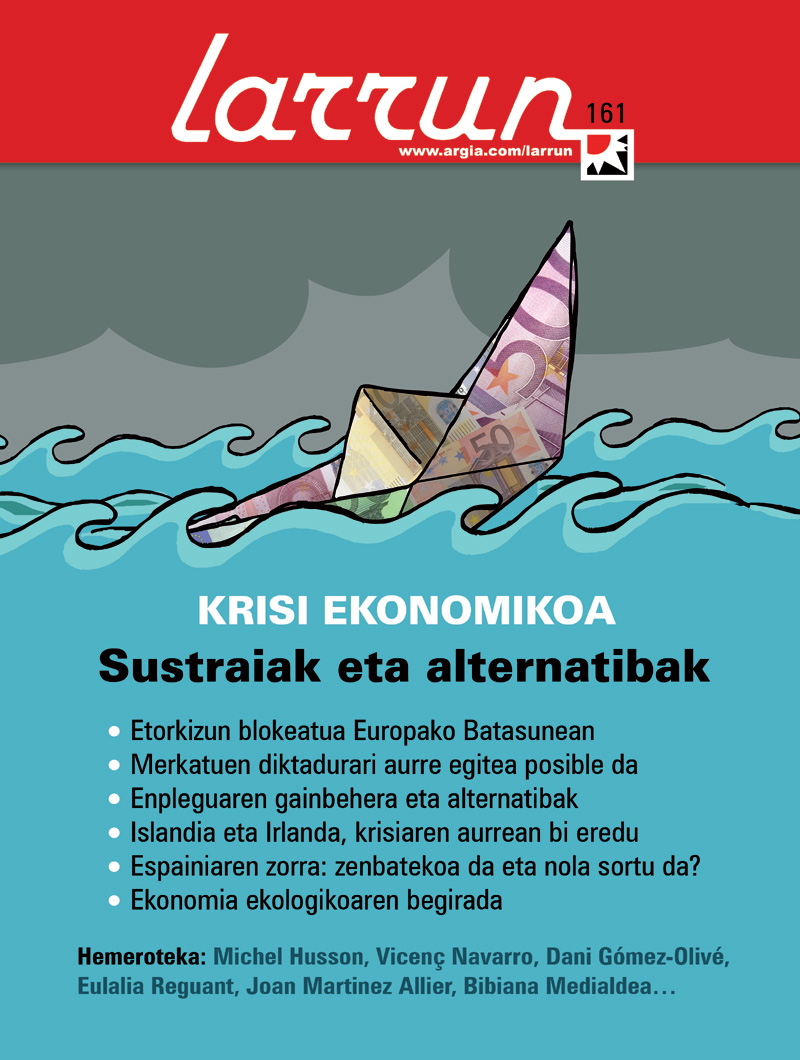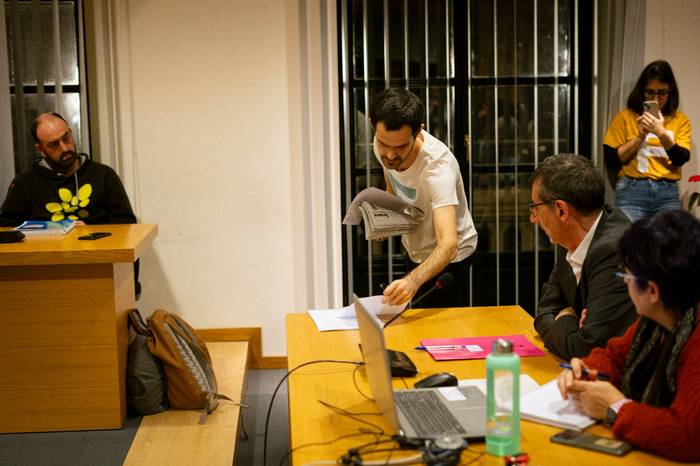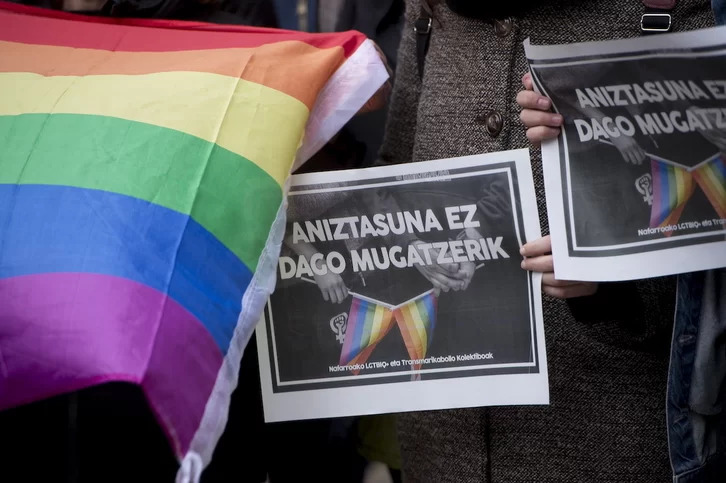In the Spanish State, how have we come to this situation?

Living in Ocracy (Icaria / ASACO, 2011)
Constantly, when we say that Spain has a sovereign debt problem, what do we mean? Is it true that the Spanish public administration has been overloaded? The problem of Spanish debt is fundamentally based on the debt accumulated by the Spanish private sector. The position of the private sector has been carried out to an untenable extent and, to a large extent, supported by the State, has made what is now in crisis the Spanish economy.
Understanding the Spanish debt…
It is not easy to know the exact amount of the debt of the Spanish economy: The debt incurred by Spanish public administrations, companies, banks and families, both abroad and within the country. In fact, we are not exactly aware of the debt accumulated by the Spanish financial sector in recent years. However, the analysis carried out by two foreign entities indicates that, at the end of 2009, the debt amounted to at least 400% of GDP. That is, four times a year the Spanish economy had the capacity to grow and generate wealth. Once the 400% of GDP calculation was approved, in May 2011 the debt would be around €4.25 trillion.
According to the Bank of Spain, public administrations owe less than EUR 700,000 million, Spanish families do not reach a trillion debt and companies have a debt of EUR 1.3 trillion. Thus, the Spanish banks, both with each other and with international creditors, both private and public, as well as the European Central Bank or the funds and insurance, have a debt of around 1.35 billion euros.
Thus, the debt accumulated by all public administrations represents only 16% of that required of the Spanish economy. In other words, the remaining 84% of the debt has been accumulated by private actors. Banks (32%) and non-financial companies (31%) are therefore primarily responsible for the Spanish economy being excessively indebted.
How have we come to this situation of over-indebtedness? Since the introduction of the euro, Germany has increased its growth thanks to the indebtedness of the most vulnerable countries of the Monetary Union (EU). In other words, Germany had to put capital surpluses somewhere and, when the euro was introduced, financed with credits the export of its goods and services to the so-called peripheral countries of the EU.
The Spanish builders and promoters were able to insure in such an absurd way the cheap credit, which came largely, directly or indirectly, from Germany, because they got it easily, blinded by the idea that that business was never going to suffer a loss. Thus, the German banks granted loans directly to the entrepreneurs of the Spanish brick business and indirectly to the Spanish banks that were also able to benefit from the real estate bubble. Therefore, the Spanish banks granted hundreds of thousands of mortgages and credits to Spanish families and companies with total ease, especially in the construction sector.
At the origin of this large private debt, responsibility (or lack of responsibility) should be attributed to those who granted loans without any control over the actual repayment capacity of the credits. Therefore, in case of non-payment, and the volume of the debt indicates that this may happen, the responsibility of private creditors, both foreign and Spanish, who granted loans without adequate guarantees should be required.
What the Spanish economy owes outside its borders: our external debt
The debt of the Spanish State to foreign creditors as of March 31, 2011 amounts to 1.7 trillion euros, approximately 70% of the Spanish GDP. According to the calculations made above, this figure represents almost half of what the Spanish economy owes to the Spanish economy. The rest is due to Spanish creditors.
Public debt accounts for only 18% of external debt (EUR 307 billion), while the private sector owes the remaining 82% (EUR 1.4 billion). Once again, financial institutions are the main debtors with 44% of external debt (EUR 760 billion), while the remaining sectors owe 38% (EUR 662 billion). According to the Bank of Spain, private agents abroad owe 140% of Spain’s GDP, in full collapse of the economy and almost five million unemployed. This creates some nervousness on the international market, as the non-payment of foreign debt by private debtors would have an immediate effect on foreign creditors.
In order to know who is behind foreign pressures, it is necessary to know which banks are the foreign creditors of that debt. The report, published in March 2011 by the International Payments Bank (ARRASTRER), reveals that German banks had 22% net external debt. French banks accounted for 20%, the US 17%, the British 14%, the Italians 4% and the other EU countries 16%. Merkel, Sarkozy, Obama and the European Commission's May 2010 calls to President Zapatero took effect, as the convener was a "frac collector".
In addition, the NOBEL report highlights that Spain's net external debt to foreign banks, excluding the gross debt that foreigners owe to Spanish creditors, amounts to EUR 800,000 million, approximately 80% of Spain's GDP. Of this debt, 11% belongs to the public sector and thus the other 89% (about 715 billion) belongs to the private sector.
Consequently, the risk of default is mainly concentrated in the private sector and not in the public sector. So why are Spanish and international creditors pushing the government to do reforms, cutbacks and privatizations, as if the origin of all evils were the public sector?
The central government has been willing to guarantee most of the banks’ private debt (or even all of the debt), which has led the markets (i.e. the creditors of Spanish debt) to rectify public finances to make them healthier than ever if the state has to rescue Spanish private banks.
Vagina Shadow(iko)
Group: The Mud Flowers.
The actors: Araitz Katarain, Janire Arrizabalaga and Izaro Bilbao.
Directed by: by Iraitz Lizarraga.
When: February 2nd.
In which: In the Usurbil Fire Room.





















